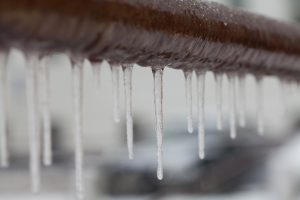 While our temperatures certainly haven’t dropped to the point of freezing yet, we all know how hard winter can hit and the weather can take a turn. If you’re putting off any winter preparation for your home until we progress a bit more into fall, we urge you to reconsider. Particularly when it comes to your Reston, VA plumbing system.
While our temperatures certainly haven’t dropped to the point of freezing yet, we all know how hard winter can hit and the weather can take a turn. If you’re putting off any winter preparation for your home until we progress a bit more into fall, we urge you to reconsider. Particularly when it comes to your Reston, VA plumbing system.
Plumbing systems are not something a whole lot of homeowners think about on a routine basis. This is especially true for plumbing problems, such as frozen pipes. However, frozen pipes occur in enough homes for it to be worth preparing your pipes. Remember, even just a couple consecutive days of below 30°F weather can result in frozen pipes, which leads to burst pipes. Can you avoid this?
Yes, Starting with Your Outdoor Plumbing
You can avoid frozen and burst pipes in your home, and it starts with prepping your outdoor plumbing. As soon as temperatures drop low enough that you won’t use your sprinkler system or hoses, turn the water flow off to these faucets, let the water drain from them completely, and leave them open. These are, after all, the pipes most prone to freezing.
You may want to invest in affordable insulated caps to place on your faucet and hose bibs for additional protection. And speaking of hoses, be sure to disconnect yours. Let them drain, and if possible store them indoors or at least in a garage where they won’t be too exposed to the winter elements.
Next, Insulate Your Pipes
There are a number of pipes within your plumbing system that run throughout your home and can be vulnerable to freezing temperatures. Some of them, though, you’ll of course still need to use no matter the time of year—they’re attached to faucets you can’t simply just drain and shut off the water supply to—like your under-sink pipes in the bathroom and kitchen and pipes in your basement area.
To properly guard this section of your plumbing system from winter temperatures, it’s a good idea to buy pipe insulating sleeves, which you can find at almost any hardware store. This helps keep the temperature of the water in the pipes from dropping too low. These are typically inexpensive, but if you’d like to save more money, you could probably achieve the same effect with towels.
Keep the Cabinets in Your Home Open
Most homes in our area don’t have exposed plumbing in the bathrooms or kitchens, meaning the pipes run under the sink or behind walls—walls that typically lead outdoors. This makes these pipes sensitive to freezing, although they are indoors. Leaving your cabinets open allows the warmth from your heating system to reach them, making them less likely to freeze.
The Trouble with Frozen Pipes
You may wonder why this is such a big deal, especially if you’ve never experienced frozen pipes before. The problem is, even though these pipes will technically thaw on their own when the weather warms back up, the pressure created by the expansion of air and water as ice thaws can cause the pipes to burst!
This leaves you with potentially significant water and plumbing damage, and possibly even injury if you are near the pipe trying to thaw it. To fix frozen pipes, the best course is to call an experienced and trained plumbing professional. We can get your plumbing system back in top shape.

